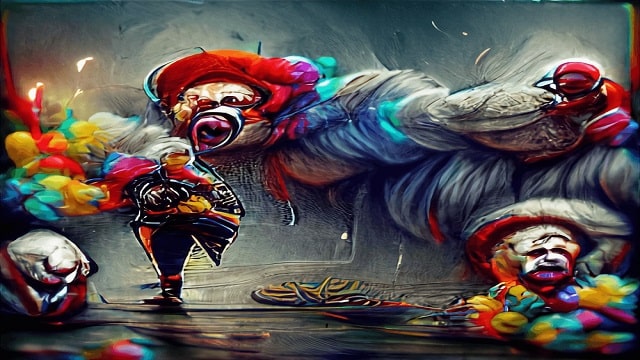Coulrophobia Meaning
Coulrophobia is the fear of clowns. It is a specific type of phobia, involving a fear of a specific situation or object. Although many people feel uncomfortable with clowns, this feeling does not always represent a true phobia.
In ancient times, the clown was a character of a fool. However, over time, the clown changed into a trickster, a more evil figure with less honorable intentions.
In the 1980s, clown phobia had reached its peak. Rumors of child abuse were rampant, and clowns were featured in many stories.
Symptoms of Coulrophobia
Like most phobias, coulrophobia can cause both psychological and physical symptoms.
Possible psychological symptoms are:
- The need to escape.
- A feeling of doom.
- Loss of control.
- Feeling disconnected from reality.
Coulrophobia can also trigger physical symptoms, such as:
- The heart is beating fast.
- Trembling.
- Sweat.
- Changes in body temperature.
- Nauseous.
- Chest pain.
- Dizzy.
- Loss of consciousness.
Causes of Coulrophobia
Like other types of specific phobias, there are several factors that can cause coulrophobia, namely:
- Family History. Having a close relative with a phobia or another type of anxiety disorder can make a person more susceptible to developing a phobia.
- Negative Experiences. Negative personal experiences with clowns at a young age can also contribute to the development of this phobia.
- Media Portrayal of Clowns. The mass media has created a hype around evil clowns, so much so that even children are influenced to dislike or fear them.
Risk Factors for Coulrophobia
Coulrophobia affects all ages and genders, although women may be more at risk for fear of clowns. A person may be at greater risk of developing this specific phobia if they already have an anxiety disorder or other phobia.
Diagnosis Coulrophobia
Since coulrophobia is not listed in the DSM-5 as a distinct condition, doctors can identify it using specific phobia criteria. For a diagnosis of coulrophobia, experiences with clowns must meet certain criteria, including:
- Clowns cause increased fear or anxiety.
- Fear or anxiety almost always occurs immediately.
- Perception of danger that is exaggerated rather than the actual risk.
- Always avoid clowns wherever they appear.
- Always avoiding or feeling anxious, causing disruption in carrying out activities such as social activities and work.
- The anxiety and avoidance have persisted for at least six months or more.
- Symptoms cannot be explained by another situation or mental health condition.
If you experience any of these criteria, you may need to talk to a mental health professional. They can perform further psychological assessments to determine the cause of your symptoms and recommend treatment, if necessary.
Coulrophobia Treatment
Many people with coulrophobia may not need treatment. However, if you work in a children’s hospital or entertainment environment that features clowns, you may need treatment. This is especially true if your phobia is causing you stress.
Your doctor may recommend anxiety medications to help relieve symptoms. However, therapy is the primary treatment for specific phobias. The most effective types of therapy are:
1. Exposure Therapy
As the name suggests, you need to face your specific phobia. In this case, you may have to be in a situation where you can see or be in the presence of clowns.
A therapist can support you through this process and help you choose the right approach. For example, you might want to try graded exposure. This means starting with the least frightening element and gradually increasing the level of difficulty.
2. Cognitive Behavioral Therapy
This is a type of psychotherapy where you identify the thoughts that cause anxiety. A therapist then helps you replace those thoughts with helpful ones, so they are no longer harmful.
3. Medicines
While medication is not a treatment for phobias, options such as beta-blockers, benzodiazepines, or antidepressants can help manage symptoms such as anxiety.
Complications of Coulrophobia
Some people with coulrophobia experience panic attacks when they see clowns. They may experience non-cardiac chest pain, rapid heartbeat, and feel like they are having a heart attack.
Constant worry about having a panic attack can lead to panic disorder. They may require long-term anti-anxiety drug therapy.
Prevention of Coulrophobia
Since children are more prone to developing phobias, it is important to manage them in a timely manner. This can prevent the phobia from getting worse, allow the child to attend the Halloween party, and make them feel safer.
If you notice that your child is afraid of clowns, here are some things you can do:
- Explain to them that clowns are just people in costumes.
- Reassure them that no one will try to hurt them.
- Try to avoid horror movies and bad news involving clowns.
When to See a Doctor?
Coulrophobia does not always have to be treated because you will not meet a clown every day. However, if the symptoms are very disturbing, seek expert help.

